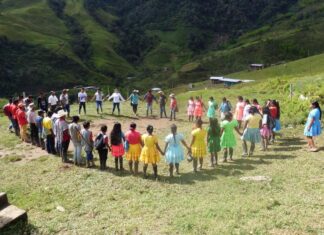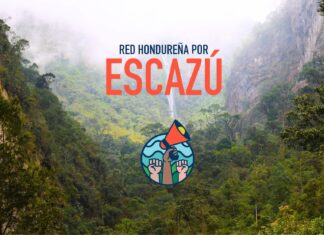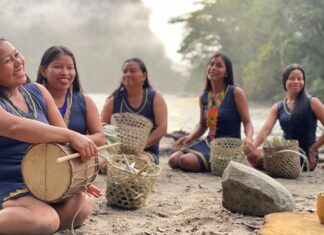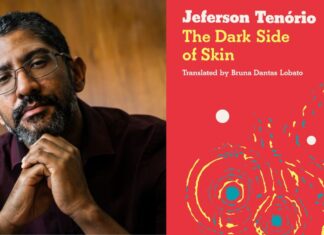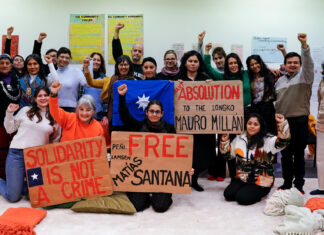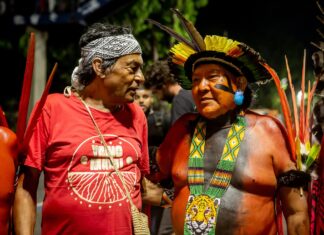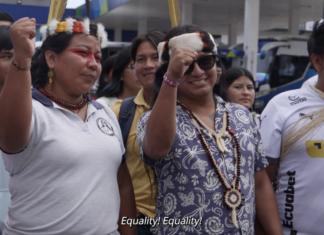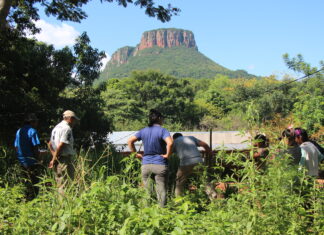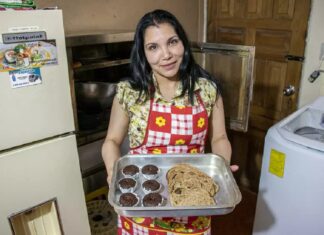LAB's Grace Livingstone speaks to the two governors of this Emberá Chamí community to learn more about their historic land restitution case and analyses the current government's efforts to tackle displacement and redistribute land.
Ricardo Andrés Pineda Guzmán, of the Honduran Network for Escazú, reminds us why it’s crucial for Honduras to sign, ratify, and enforce the Escazú Agreement for environmental justice.
In 2020, over 40 Kichwa women began to organise themselves in defence of their territory and to expel mining from the Ecuadorian Amazon. This is how Yuturi Warmi, the first Indigenous guard led by women in the region began.
Jeferson Tenório, originally from Rio de Janeiro, is currently a teacher of literature in Porto Alegre. The Dark Side of Skin is his third novel and winner of the esteemed Jabuti national literature prize.
Moira and Vilma had travelled from southern Patagonia to Europe to spread awareness of the urgent situation for Indigenous peoples in the south of Argentina, and to strengthen bonds of international solidarity.
Brazil's Indigenous leaders are at last being recognized, reports Jan Rocha. But will anything really change in their 500-year-old struggle, as Brazil's Congress continues to defend the interests that seek to annihilate them?
In a new LAB film, environmental defenders discuss their territorial work and the Americas-wide alliance for racial and climate justice
Paĩ Tavyterã Indigenous communities are employing ancestral knowledge and advocacy against the impacts of climate change
In an extraordinary interview, Brazilian journalist Eliane Brum explains how language is fundamental to the life of the Amazon and its peoples
Increasing violence and instability are driving refugees and some Ecuadorians towards risky migration

